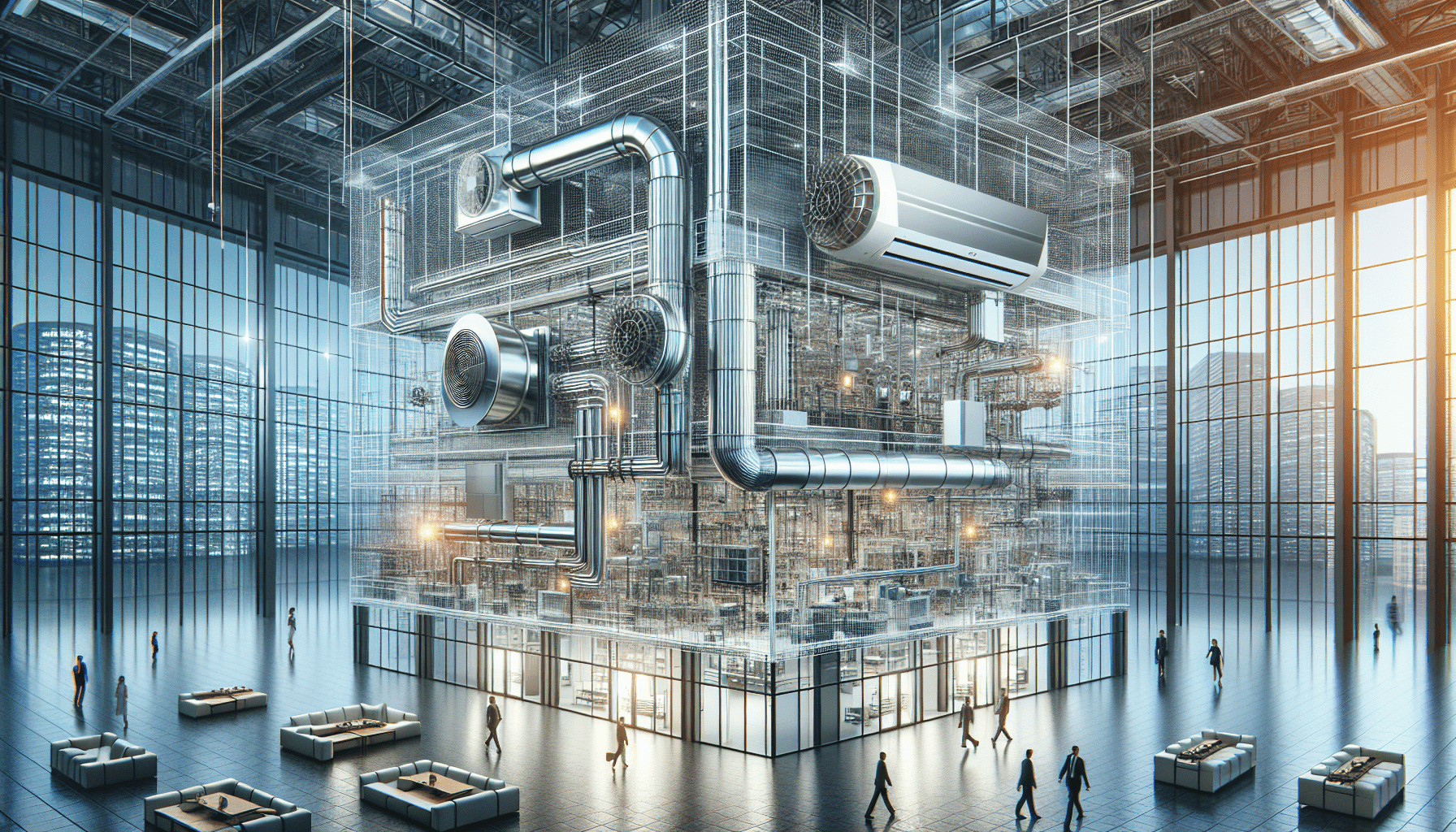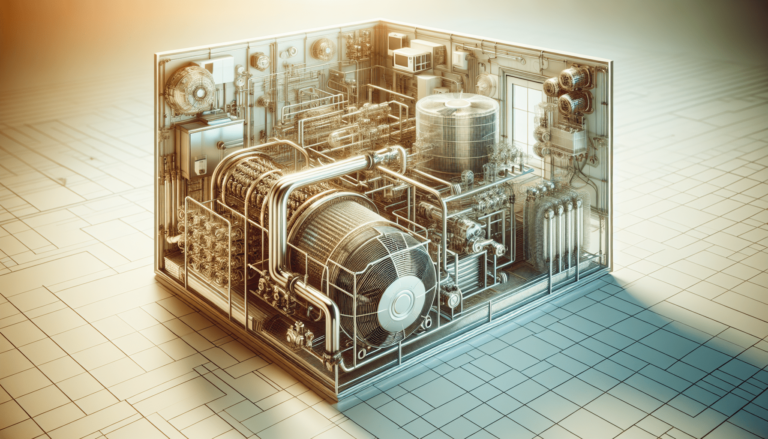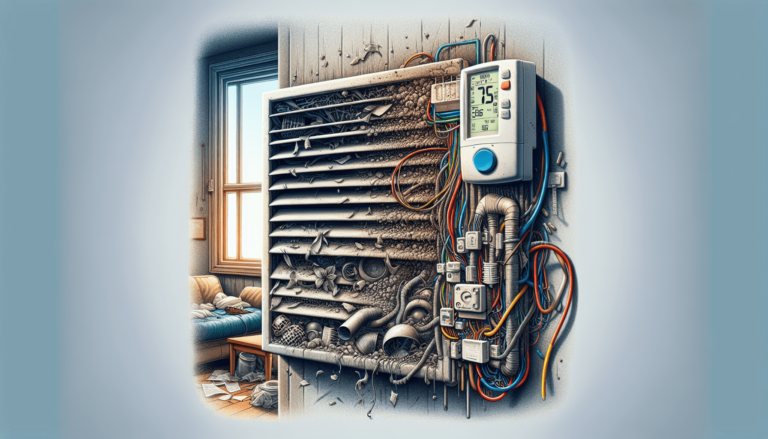

HVAC Services
Get Professional Repairs From The Area's Trusted HVAC Technicians. Ask About Our Services! We Offer Professional Heating & Cooling System Repairs And Guarantee Long-Lasting Results.
Got Question? Call us: (850) 678-2665Financing
Reducing HVAC Costs In Commercial Settings
Discover practical tips for slashing HVAC costs in commercial settings. From optimizing energy use to embracing smart tech, maintain comfort without breaking the bank.

Have you ever wondered how you can cut down on the costs of heating or cooling a commercial space? You’re certainly not alone. Managing HVAC expenses in offices, shops, and other commercial settings is a common concern. With businesses striving to optimize overheads, understanding ways to efficiently manage HVAC costs can be a game-changer. Let’s consider some practical solutions to help you reduce expenses without compromising comfort.
Understanding The Basics Of HVAC Systems
A solid grasp of how HVAC systems function is crucial for cost reduction. HVAC stands for Heating, Ventilation, and Air Conditioning, a system essential for maintaining a comfortable environment in commercial spaces. This system regulates temperature, ensures adequate airflow, and controls humidity levels. Key components include air conditioners, furnaces, ductwork, and thermostats.
How HVAC Systems Work
HVAC systems function by circulating air throughout the building. Warm air is drawn through a series of ducts and passes through an air filter. The air is either heated or cooled and then circulated back into the space. The system might seem simple, but several mechanisms work together to deliver the desired temperature. Understanding these processes is a stepping stone to optimizing energy use.
Common Components Of HVAC Systems
While different systems cater to various needs, some elements are universal. These include the thermostat, which controls the overall system, and heating and cooling units, which adjust the temperature. Ducts distribute air, and filters keep the air clean. Each piece plays a part in energy consumption, revealing opportunities for efficiency improvements.
Evaluating Current HVAC Performance
Evaluating your current system’s performance is essential in identifying where to cut costs. Conducting regular inspections can reveal inefficiencies and potential areas for improvement.
Regular Maintenance Checks
Routine maintenance can significantly impact your HVAC system’s efficiency. Regular checks help identify issues before they escalate, ensuring the system operates optimally. Schedule inspections every few months to keep everything in working order. This might involve replacing filters or cleaning ducts to ensure good airflow.
Importance Of Energy Audits
An energy audit assesses your system’s energy consumption. This process identifies how your system uses energy and highlights areas for savings. Professional audits provide a detailed report, offering actionable insights into energy waste and guides for efficient usage. It’s a small investment towards long-term savings.

HVAC System Optimization Techniques
Knowing efficient practices is essential for reducing energy consumption without compromising comfort. Here’s how you can bring changes for better results.
Upgrading To Energy-Efficient Units
Upgrading your HVAC units to more energy-efficient models can yield significant cost savings. Newer units consume less energy and offer features like programmable thermostats and smart technology, allowing precise control over the heating and cooling.
Installing Programmable Thermostats
Programmable thermostats allow you to set specific temperatures for different times. For example, you can reduce heating or cooling during non-business hours, cutting unnecessary energy use. These devices are a smart investment for optimal energy management.
Utilizing Smart HVAC Technology
Smart technology offers advanced control over your HVAC system. Smart thermostats and sensors actively monitor conditions and adjust settings for maximum efficiency. Such technology streamlines usage and provides detailed analytics to understand consumption patterns better.
Effective Building Insulation
Proper insulation reduces energy loss, maintaining desired temperatures with less effort from your HVAC system. Here’s how you can insulate efficiently.
Insulation Material Choices
Choosing the right insulation material matters. Options like spray foam, rigid board, and fiberglass each offer unique benefits. Depending on climate and building size, your choice will vary. Consult with experts to select the best material for your needs.
Sealing Windows and Doors
Noticing drafts around windows and doors? Seal these areas with weatherstripping or caulk to prevent heat loss. These gaps can account for significant energy waste, making your HVAC system work harder than necessary.

Maximizing Ventilation Efficiency
Enhanced ventilation plays a major role in maintaining air quality and temperature effectively. The aim is to circulate air optimally without straining your HVAC system.
Regular Duct Cleaning
Dirty ducts impede airflow, forcing the HVAC system to consume more energy to move air. Regular duct cleaning prevents this issue, ensuring efficient air movement throughout your building. This simple step can lower energy costs significantly.
Installing Ventilation Fans
Ventilation fans help manage airflow better in large or multi-floor buildings. These fans assist the HVAC system by maintaining air movement in spaces like restrooms and kitchens, reducing the load on your main system.
Monitoring And Reducing Energy Consumption
Watching your energy use closely ensures cost management. Here’s how you can monitor effectively.
Energy Monitoring Systems
Installing an energy monitoring system provides real-time data on power usage. This technology allows you to spot trends and inefficiencies quickly. Adjustments can be made instantly, ensuring consistent energy savings.
Setting Clear Energy Goals
Establish clear, measurable goals for energy reduction. Targets can include percentage drop in usage or bill reductions. Regularly review progress and adjust strategies as needed to stay on track.
Solar Power and HVAC Systems
Solar energy offers an alternative that can significantly reduce costs. Transitioning to solar-powered HVAC systems is not only eco-friendly but cost-effective in the long run.
Benefits Of Solar-Powered HVAC
Solar energy is renewable, reducing dependency on traditional power sources. It offers long-term financial savings through reduced utility bills. Even partial solar power adoption in HVAC systems can lead to significant cuts in energy costs.
Initial Steps Towards Solar Conversion
Starting with solar requires an initial investment. Begin by assessing the feasibility of solar panels for your location. Consult with solar experts to determine the best configuration for your building. This green step not only benefits the environment but your bottom line too.
Educating Staff On HVAC Efficiency
Engaging your team in energy-saving processes makes a big difference. Staff awareness and involvement ensure success in managing HVAC costs.
Sharing Best Practices
Provide training sessions for your staff to understand the impact of simple actions, like closing doors or adjusting thermostats. Educating them on best practices for energy conservation empowers them to contribute to savings actively.
Encouraging Team Participation
Encourage staff to participate in suggesting ways to improve energy savings. Create incentives for innovative ideas that lead to actual changes in behavior or processes.
Establishing A Maintenance Routine
A consistent maintenance schedule keeps your HVAC system efficient and extends its lifespan. Following a maintenance routine is crucial for preventing expensive repairs.
Creating A Maintenance Checklist
Develop a checklist encompassing all necessary maintenance tasks. Regular filter changes, cleaning vents, and inspecting thermostats should feature on your list. Follow this schedule diligently for consistent efficiency.
Involving Professional Services
While daily maintenance tasks are manageable in-house, professional services ensure thorough and expert inspections. Schedule professional maintenance bi-annually to catch and rectify issues early.
Final Thoughts and Recommendations
Reducing HVAC costs in commercial settings requires a multi-faceted approach. Balancing upgrades with everyday efficiency practices ensures long-term savings. Implement these strategies gradually and monitor their impact on both costs and functionality. Your business will benefit from reduced overheads and a more sustainable energy footprint.
If you need expert guidance on managing your HVAC system, consult professionals like Tempacure Heating and Air Conditioning. They offer extensive experience and solutions tailored to your business’s unique needs. Connect with them at 325 Cedar Ave S Suite B, Niceville, FL 32578, or call (850) 678-2665 to explore your options. Let these steps guide you in slashing HVAC costs while maintaining a comfortable, efficient environment for your business operations.







